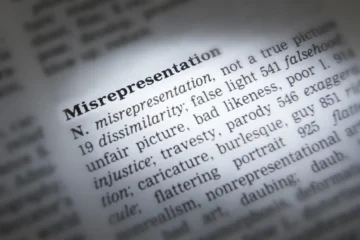PUBLIC ALERT!!! Debt Review Removal Scam & Fraud Warnings in South Africa (2025)
The National Debt Review Center (NDRC) issues this public service announcement in response to a surge in fraudulent activity targeting vulnerable South Africans seeking debt review removal services. This guide outlines verified debt review removal scams, tactics, regulatory alerts from the National Credit Regulator (NCR), and what you can do to protect yourself.
Table of Contents
Debt Review Removal Scam Tactics to Watch Out For
- Promises of instant debt review clearance.
- Individuals or companies falsely claim to be attorneys or legal experts specializing in “instant” debt review removal. They might use legal jargon to intimidate or impress you. True legal removal processes take time and follow specific court procedures; there’s no legitimate “instant” fix.
- Requests for upfront payments (sometimes up to R10,000) before delivering services
- Untraceable service providers operating only through WhatsApp or social media. Be wary of operators who conduct all business exclusively via WhatsApp, have no physical office, and lack official company registration details (e.g., a CIPC registration number). Legitimate businesses have a traceable footprint.
- Lack of written contracts, invoices, or full disclosure of fees
- Impostors pretending to be NDRC representatives.
- Misleading claims about “Free Debt Review Removal” that result in hidden fees or bait-and-switch tactics
- Fraudsters issue official-looking “clearance certificates” (Form 19) even if your debts aren’t fully paid or the proper legal process hasn’t been followed. These documents are worthless and won’t clear your debt review status with credit bureaus or the NCR. A legitimate clearance certificate can only be issued by your debt counsellor once all relevant debts under the review are settled according to the NCA.
- If a company is vague about its physical address, or if the address seems suspicious upon checking (e.g., a residential address for a large “legal firm”), this is a major red flag. Scammers thrive on anonymity and avoid creating paper trails that could lead back to them. Always insist on written agreements and detailed invoices.
If you’re looking for legitimate assistance with debt review removal, it’s crucial to work with registered professionals. Learn more about debt review removal here
Official National Credit Regulator Warning Against Scams
The NCR has warned consumers against companies making false promises and violating the National Credit Act by:
- Charging illegal upfront fees
- Operating without registration
- Failing to deliver debt review removal or legal outcomes
- Advertising so-called “free” removal services that end up incurring major costs
These actions leave consumers defrauded and still listed under debt review.
See Circular 1 and Circular 2 the recent 2025 Circulars posted by the NCR.
How to Protect Yourself from Debt Review Scams
- Check if a the debt counsellor is registered with the National Credit Regulator (NCR). Only NCR-registered debt counsellors can legally offer debt review services and issue valid clearance certificates. Verify their registration on the NCR website. NCR Register of Registrants
- Check if the attorney or legal firm is registered with the Legal Practice Council (LPC) – Check Legal Practitioner Here – Check Legal Firm Here
- Insist on written disclosure of all costs.
- Never pay large upfront fees for “guaranteed” removal or legal services without a clear, legally sound service agreement. While some processes have associated costs (e.g., court application fees, legitimate attorney fees if required), be extremely wary of demands for substantial upfront payments for simply “removing” you from debt review, especially if it sounds too good to be true.
- Verify if the company is a registered business in South Africa via the Companies and Intellectual Property Commission (CIPC) website.
- Keep meticulous records of all communications. This can be crucial if you need to report a scam.
- Search for online reviews and testimonials. If possible, verify their physical office address. A lack of online presence or consistently bad reviews is a warning sign.
How NDRC Legally Removes Debt Review
Exiting debt review is possible, but it must be done through established legal channels. As the NDRC, we emphasize the importance of following these legitimate ways to ensure that the debt review listing is removed from your credit profiles and your rights are protected. The legit ways to exit debt review include:
We only use recognized legal processes under:
- Section 71 – Clearance Certificate issued by a registered debt counsellor. – This is the most common and ideal way to exit debt review. Once you have paid off all the debts that were restructured under your debt review plan (with special provisions for home loans, which need to be up-to-date), a registered debt counsellor is legally obligated to issue you with a Clearance Certificate (Form 19). They must then submit this to all registered credit bureaus to have the debt review flag removed from your credit profiles. Learn more here about clearance certificates.
- Section 87 – Court application to terminate review if no certificate can be issued. This is possible If there is no debt review court order in place and your financial circumstances have significantly improved before all debts are paid off, and you can demonstrate to a Magistrate’s Court that you are no longer over-indebted and can meet your original credit obligations.
- Section 165 – Rescission of an existing court order under limited legal grounds. This is applicable if your debt review was made an order by the National Consumer Tribunal (NCT) – perhaps through a consent order – and there was an error in the process, ambiguity in the order, or a mistake common to all parties, an application can be made to the NCT under Section 165 of the NCA to vary or rescind that specific order.
All services include a free assessment and transparent fee disclosures and no upfront payments required.
Official NDRC Fraud Policy
PUBLIC ALERT – FRAUD WARNING
We’ve received reports of criminals posing as NDRC agents and requesting payment into unauthorized bank accounts.
- We never request payment via WhatsApp or private messages to a personal bank account.
- Official payment instructions only come via verified NDRC channels.
- Do not pay into any personal bank account.
If contacted suspiciously:
- Do not respond or make payment.
- Do NOT share sensitive personal or banking information.
- Contact us directly through our official channels to verify any communication. Contact Us
- Report the incident immediately to us or SAPS.
- Report to the National Credit Regulator.
We are cooperating with authorities to prosecute offenders misusing our brand.
How to Report a Scam
- Email: complaints@ncr.org.za, tvandergrijp@ncr.org.za complaints@ndrc.org.za
- NCR Call Centre: 0860 627 627 / 011 554 2817
- Report to NDRC via our contact form or official support lines (0410125036 or 0878221249 or 0727703674
Frequently Asked Questions
Is it legal to charge for debt review removal?
Yes, there can be legitimate costs associated with exiting debt review, especially if it involves a court application (e.g., for rescission under Section 87). Attorneys and debt counsellors charge fees for their professional services in preparing and lodging such applications.
However, these fees should be transparent, reasonable, and for actual legal work performed, not for “guaranteed quick fixes.” Issuing a standard Clearance Certificate (Form 19) after debts are paid usually has a nominal or regulated fee from the debt counsellor. Beware of exorbitant upfront fees for simply “removing” the flag without due process.
How can I check if a company or debt counsellor is legitimate?
- Verify if the debt counsellor is registered with the National Credit Regulator (NCR) on the NCR’s official website. https://www.ncr.org.za/register_of_registrants/
- Check if the business is registered with the CIPC (Companies and Intellectual Property Commission).
- Look for a physical address, landline contact numbers (not just cellphones or WhatsApp).
- Search for online reviews and any fraud alerts associated with the company name.
- Ask for references (though be aware these can also be fabricated by scammers).
Can debt review be removed without going to court?
- Yes. The primary way debt review is removed without a new court process is when you have paid all debts included in your debt review plan as per the National Credit Act. Your debt counsellor then issues a Clearance Certificate (Form 19), which is sent to credit bureaus to remove the debt review status. This is the standard and most common method.
- A debt review court order removal is typically for situations where you wish to exit before all debts are paid, proving you are no longer over-indebted.
How long does the legal debt review removal process take?
- With a Clearance Certificate – Once debts are paid and the certificate is issued, credit bureaus generally take between 7 to 21 working days to update your record.
- Via Court Application (e.g., Section 87): This can take longer, typically 1 to 6 months (or longer), depending on court backlogs, the complexity of your case, and the efficiency of the legal team handling it. Be wary of anyone promising removal in a few days.
Why does it cost money to exit debt review if I’ve already finished paying my debts?
- If you’ve finished paying all your debts as per the debt review plan, your registered debt counsellor is obligated to issue a Clearance Certificate (Form 19). There is a regulated aftercare fee for this issuance and related administrative tasks of notifying credit bureaus. This debt counselling fee is generally modest and capped to R450 vat exclusive.
- If you are being quoted large sums after paying your debts just for the certificate, question it and consult the NCR fee guidelines or another trusted professional. The significant costs for exiting debt review usually arise when you are applying to the court to be declared no longer over-indebted before all debts are settled, as this involves legal fees for the court application process.
Stay Safe & Stay Informed
Bookmark this page and share it widely to protect others. Follow us for continuous updates and real-time scam alerts affecting South African consumers. Let’s stop financial fraud together.
Trusted. Legal. Transparent.
NDRC – The Leader in Debt Review Removal in South Africa



0 Comments